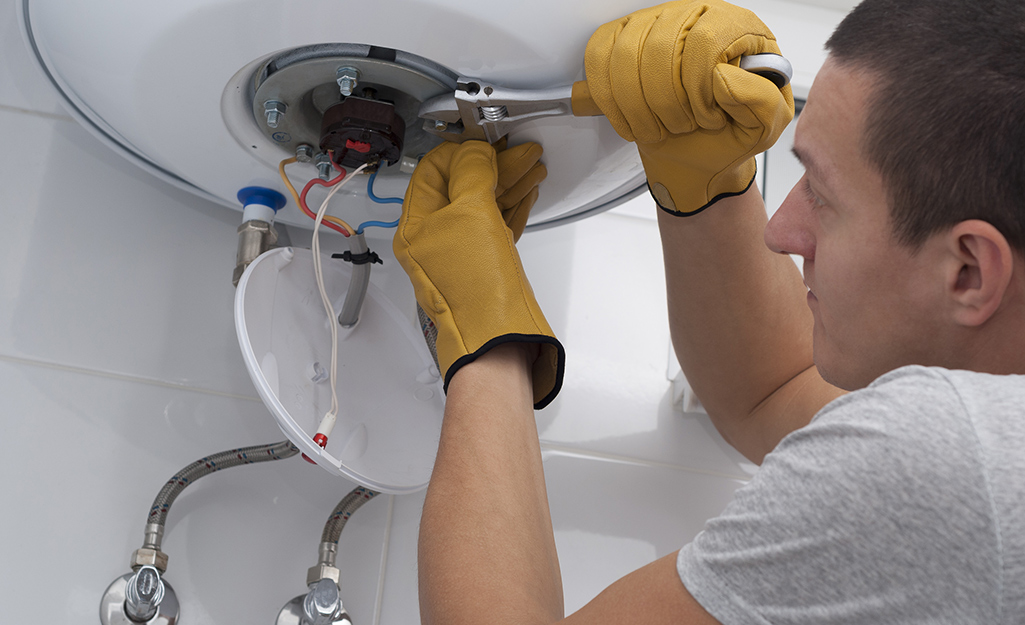Coping with the Chief Water Heater Crisis Events
Coping with the Chief Water Heater Crisis Events
Blog Article
We have stumbled upon this post on Warning Signs You Need Water Heater Repairs listed below on the internet and thought it made sense to write about it with you on this page.

A water heater is among one of the most important basic home appliances that can be found in a residence. With water heaters, you do not need to experience the stress of home heating water by hand whenever there is a need to take a bath, wash, or the meals. There is always an opportunity that your water heating unit would act up as with most mechanical tools.
It is important to keep in mind any kind of little breakdown and also tackle it quickly prior to things leave hand. Many times, your water heater begins to malfunction when there is a build-up of sediments as a result of continuous use. As a preventative measure, routine flushing of your hot water heater is suggested to avoid debris buildup and also stop useful failing.
Usual hot water heater emergency situations as well as how to handle them
Leaking hot water heater tank.
A leaky container could be an indicator of deterioration. It might trigger damages to the flooring, wall surface and also electrical gadgets around it. You can even be at danger of having your house swamped. In this situation, you must turn off your hot water heater, enable it to cool, and thoroughly try to find the resource of the trouble. At times, all you need to do is to tighten up a few screws or pipe links in cases of minor leaks. If this does not function as well as the leakage continues, you may need to utilize the solutions of a specialist for a proper substitute.
Changing water temperature level.
Your water heating system could begin creating water of various temperature levels usually ice chilly or hot warm. There could be a requirement to change either the thermostat or the heating device of your water heating system.
Too little warm water
It might be that the water heating unit can not support the warm water demand for your home. You might update your water heater to one with a bigger capacity.
Blemished or odiferous water
When this happens, you need to recognize if the issue is from the storage tank or the water resource. If there is no amusing smell when you run chilly water, after that you are certain that it is your water heating unit that is damaged. The stinky water can be caused by rust or the buildup of microorganisms or debris in the water heater tank.
Final thought
Some house owners neglect little warning as well as minor faults in their water heater system. This only leads to further damages and a feasible full breakdown of your appliance. You need to deal with your water heater mistakes as soon as they come near stay clear of even more expenditures as well as unnecessary emergency troubles.
With water heating units, you don't need to go via the stress and anxiety of home heating water manually every time there is a demand to take a bathroom, do the washing, or the meals. Your water heating unit could begin producing water of various temperatures usually ice cold or scalding warm. It might be that the water heater can't support the warm water demand for your home. If there is no funny scent when you run cold water, after that you are specific that it is your water heating system that is malfunctioning. The smelly water can be created by corrosion or the build-up of bacteria or sediments in the water heating unit container.
Common Water Heater Issues and What You Should Do
What Type of Water Heater Do You Have?
Before we begin it’s first important that you identify the type of water heater you have on your property. There are two main types of water heaters out there: conventional and high efficiency.
Both of these types of products typically use either gas or electricity to heat power. There are also solar water heaters that use a thermal collector on the roof or yard to heat the water.
While these models are not as common, they can cut heating costs in half. In this article, we will focus on conventional and high efficiency.
How Do My Electric and Gas Water Heater Work?
Though they look similar, electric and gas water heaters work very differently. It’s important to know their basic function because often problems can be specific to the heating source.
In the electric model, a thermostat on the side of the machine detects the temperature of the water in the tank. When the temperature needs to rise electricity flows to a heating element suspended in the water.
Gas models also use a thermostat device — typically with a mercury sensor at the tip and an additional sensor called a thermocouple. The thermocouple detects whether the pilot light is on and controls the flow of gas.
When the thermostat drops below the appropriate level gas is released which becomes ignited by the pilot light. The flame heats the bottom of the water tank which causes hot water to rise and cold water to drop.
This natural circulation continues until the water reaches the desired temperature. Then, the thermostat triggers the gas control valve to shut off the flow of gas.
What Are the Most Common Issues and How Do You Fix Them?
https://happyhiller.com/blog/common-water-heater-issues-and-what-you-should-do/

Do you enjoy reading about Common Hot Water Heater Problems? Create a review below. We would be delighted to find out your feelings about this page. We hope that you visit us again soon. Loved our post? Please share it. Let others locate it. I recognize the value of reading our article about Is Your Water Heater Leaking?.
Maintenance Sign-Up Report this page